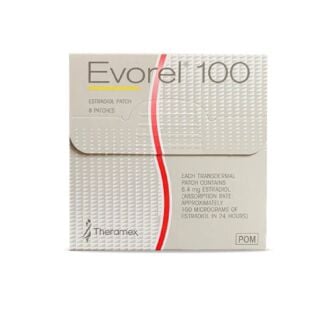Is there a link between menopause and anxiety?

Have you discovered that your anxiety is worse during menopause? Maybe perimenopause anxiety is causing you unwanted stress.
Changes in your hormones can impact your mental health as well as your physical health. Experiencing anxiety during the menopause is a common symptom for most women, so it’s important to know that you’re not alone.
A lot of women don’t make the connection and think they are not coping as well as they used to or they think that something else has triggered their anxiety. Even if you haven’t experienced anxiety in the past, you can still be affected.
Let’s talk about the potential link between menopause and anxiety.
Can menopause cause or increase anxiety?
During the perimenopause and menopause, many mood changes can happen due to the hormone levels in the brain changing. It is a common symptom of menopause.
In the menopause transition your oestrogen levels start to fall, changing the way your brain functions. Oestrogen levels are linked to cortisol levels, which is the hormone of stress. When your oestrogen levels drop, cortisol levels rise. This can lead to feelings of anxiety and mood swings.
It is not only down to the changes in your hormones that can cause menopause anxiety. Other factors such as life changes and sleep disturbances during the menopause can also trigger anxiety.

Will anxiety go away after menopause?
The symptoms of anxiety are often linked to other physical symptoms that you might experience such as hot flushes, night sweats and insomnia, not to mention the fact that your periods stop.
Many women find that their anxiety symptoms ease after menopause. Hormones begin to level out and anxiety typically starts to ease. The symptoms tend to go away when your body starts to get used to the new hormone levels.
For some women, menopause anxiety might only be short-lived. In others the anxiety might stick around for a few months or longer. The length of time that a woman experiences anxiety differs from person to person.
In some cases, women will find that their anxiety symptoms remain, however, there are methods for managing your anxiety.
Menopause and anxiety driving
Menopausal and perimenopausal symptoms can affect your driving. Increased anxiety, brain fog and losing your confidence can impact your ability to drive.
Brain fog is a menopause symptom. It can be scary and difficult trying to maintain your concentration and you might worry about zoning out whilst on the road. Things that were once second nature such as changing gears or setting off can become more complicated.
Some women might experience panic attacks thinking about driving or even experience them whilst driving.
Anxiety affects the way you drive and your habits in a number of different ways. If it’s impacting your driving then it might be a good idea to take some refresher lessons to build your confidence on the road back up.

Will hormone replacement therapy (HRT) help with menopause anxiety?
Due to hormones having such an impact on your mood and anxiety, hormone replacement therapy might help to ease your symptoms. Hormone replacement therapy is a medication that supplements hormones that are lost.
You can talk to your GP about hormone replacement therapy to help relieve your symptoms of menopause. It is something to consider if you experience multiple symptoms including the dreaded hot flash.
The length of time you need to stay on hormone replacement therapy differs from person to person depending on your personal risk factors and your symptoms.
Hormone replacement therapy can also help with changes in your mood and feelings of anxiety and depression.
Ways to cope with anxiety during the menopause
Talking therapy
Talking therapy allows you to discuss and identify the route of your anxiety, low mood and negative thinking. It teaches you ways to cope, allowing you to learn techniques to minimise the impact of your anxiety.
Increase your exercise
By including more exercise in your daily life you might find a reduction in those feelings associated with anxiety.
Moderate to vigorous exercise has the ability to provide you with an uplift in your mood. Try going out for a walk or swimming a couple of times a week.
Relaxation
Take some time to yourself to relax. This will help to relieve you from any stress or anxiety that you might be feeling.
You can try out yoga, breathing techniques, meditation or whatever else works for you to help you unwind and relax more.
Medication
Antidepressants can play a huge role when it comes to managing anxiety. It is worth talking to your GP if you think they are right for you. They can be helpful if menopause anxiety is getting in the way of your ability to live your life.
Antidepressants can help take the edge off anxiety, help you get a better night’s sleep and can also help with hot flushes.

Remember, if you are suffering with menopause anxiety, it is not uncommon. Around 50% of women have experienced mood changes related to anxiety. It can happen at any stage of the menopause, including perimenopause.
Menopause anxiety can affect anyone, even if you haven’t experienced mental health problems before. It is unpleasant and can make you feel fearful or worried, however, it’s not your fault and it’s not a sign that you are not coping.








